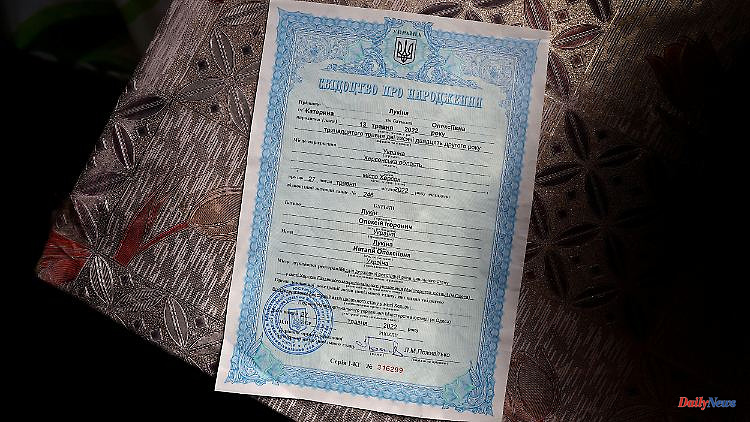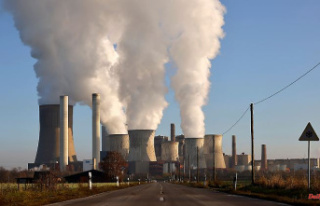Before the recapture of Cherson, newborns must acquire Russian citizenship. Otherwise the occupiers deny the mothers access to baby food and diapers. A Ukrainian woman and a doctor report.
In May last year Kateryna saw the light of day in one of the darkest hours of her birthplace Kherson. Her 65-year-old grandmother Olha Lukina just managed to register the newborn as a Ukrainian citizen in the city in southern Ukraine that has been occupied by Russia since March. A little later, all newborns had to be registered as Russian citizens, as chief physician Leonid Remyga from the Kherson Clinic recalls. An unknown number of babies born before Ukrainian forces recaptured Cherson in November are now Russians on paper.
In the Kherson Clinic, the city's only functioning hospital, 489 children were born last year, significantly fewer than the average of 1,200 per year before the outbreak of the war. Chief physician Remyga attributes the decline to the fact that many mothers fled to parts of the country controlled by Ukraine or abroad to give birth. In Ukrainian hospitals, parents receive medical records of the birth of their child, but have to go to the registry office to obtain a birth certificate with citizenship. In his hospital, Remyga applied Ukrainian laws until June 7, when Russian soldiers relieved him of his duties. "They ran such a propaganda campaign that Russia is here forever," Remyga recalled. "Then FSB employees threatened that families would have problems if they didn't accept the Russian papers."
Those problems included denial of access to diapers and baby formula, according to the doctor and Kateryna's parents. "When we asked for diapers, the Russians said to us, 'If you come without a Russian birth certificate, we won't give you diapers,'" said mother Natalia Lukina, 42. Most of the parents of young children with no income depended on the free products from the Russian occupiers. "There wasn't a penny of money," adds Lukina's partner Oleksiy Markelov. Reuters could not independently verify their report. Moscow's FSB secret service could not initially be reached for comment on the statements made by residents of Cherson.
During the occupation, many parents did not register their newborns as either Russian or Ukrainian citizens, according to Olena Klimenko, head of the Kherson regional registry office. Since November - after the liberation from the occupying forces - many have subsequently registered their babies as Ukrainian citizens. Klimenko does not have exact figures. It is not clear how many children received Russian citizenship because Russian officials were handling the cases and Ukrainian officials were not cooperating with them. Lukina refused to change her daughter's Ukrainian birth certificate, issued two months after the occupation began.
Reuters news agency was able to see Kateryna's Ukrainian papers stamped by the Ukrainian Ministry of Justice. The ministry could not immediately be reached for a statement on the situation in Cherson during the Russian occupation. "We told (the Russians) that the baby was born in Ukraine and is Ukrainian, not Russian," reported Lukina. She and Markelov live with their three children and grandmother without electricity or running water just 1.5 kilometers from the Russian-controlled opposite side of the Dnieper River. Occupied by Russia for eight months, Cherson is now a ghost town bombarded daily by the Russian army.












